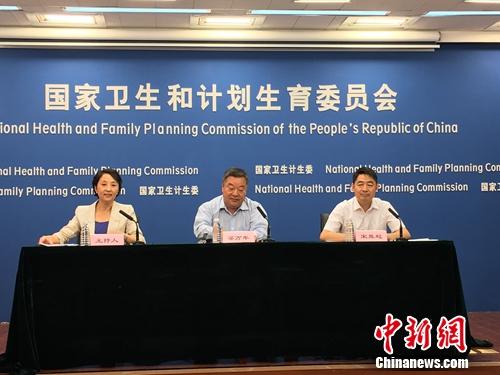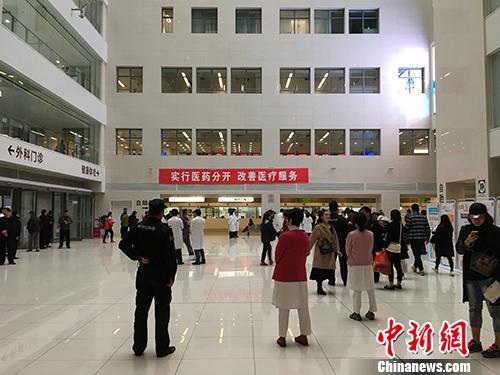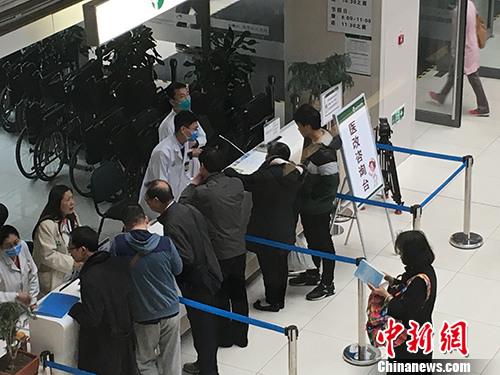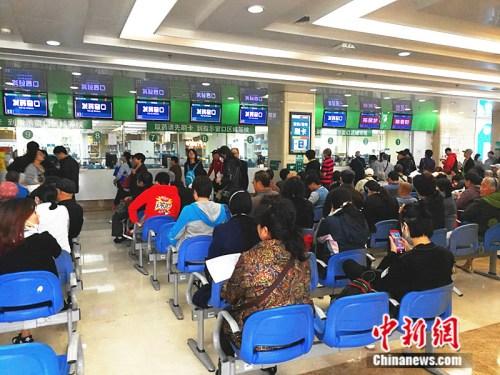BEIJING, Beijing, May 12 (Shang Qi) The General Office of the State Council recently issued the "Key Tasks for Deepening the Reform of Medical and Health System in 2017", which clarified 70 key tasks that need to be done well this year and aroused social concern.
How much is the government going to spend on health care this year? What are the requirements for canceling drug addition in public hospitals? Can it really reduce the burden on patients? How to solve the drug shortage problem that people are concerned about?
In response to many questions, on the morning of the 11th, the National Health and Family Planning Commission held a special press conference in Beijing to respond one by one.

How much is the government going to spend on health care this year?
— — The national budget for medical and health expenditure is 1.4 trillion yuan.
The problem of "expensive medical treatment" has always been concerned by the society, and some media have pointed out that medical reform needs a lot of financial support.
At the press conference on the 11th, Song Qichao, deputy director of the Social Security Department of the Ministry of Finance, responded that all levels of finance will continue to regard health care as the key area of financial support in accordance with the spirit of last year’s National Health and Wellness Conference and the overall work deployment of the State Council’s medical reform this year, and increase investment to support various key tasks of medical reform.
He revealed that in 2017, the national financial medical and health expenditure budget was 1,404.4 billion yuan, 4.4 times that of 2008 before the start of medical reform, 5.1% higher than that of 2016, and 1.9 percentage points higher than that of the national fiscal expenditure budget in the same period. The proportion of medical and health expenditure in the national fiscal expenditure increased to 7.2%.
Among them, the central government’s medical and health expenditure budget is 398.2 billion yuan, 4.7 times that of 2008 before the start of medical reform, 7.7% higher than that of 2016, and 1.6 percentage points higher than that of the central government’s expenditure budget in the same period.
Song Qichao emphasized that medical reform funds are the "life-saving money" of the masses. The financial department attaches great importance to the supervision of medical reform funds and will further intensify its work to ensure the safe, standardized and effective use of funds.

How do patients feel about canceling the drug addition?
— — Let the overall medical burden of ordinary people not increase.
The core task of public hospital reform is to break the mechanism of supplementing medicine with medicine and establish a new operating mechanism of public hospitals. The key to getting rid of medicine is to cancel the drug addition.
Then, can patients feel the changes after the drug addition is cancelled?
In this regard, Liang Wannian, full-time deputy director of the State Council Medical Reform Office and director of the Department of Physical Reform of the National Health and Family Planning Commission, said at the press conference that the main sources of compensation for public hospitals now include government subsidies, medical service charges and drug bonus income. The reform is to remove the drug bonus income. If there is no comprehensive reform, the cancellation of the drug bonus will inevitably affect the normal operation of the hospital, as well as the development of the hospital and the mobilization of the enthusiasm of medical staff.
He said, "The key point of this reform is that after the cancellation of the bonus, the hospital can operate in a benign way, and the enthusiasm of medical staff can be effectively mobilized, and the overall medical burden of the people will not increase, and the medical insurance fund will be able to bear and sustainable."
To this end, Liang Wannian introduced that "changing cages for birds" is a system reform that has been implemented in the reform of urban public hospitals.
It is reported that the so-called "cage for birds" is a trilogy — — The first step is to increase the charges of medical services through the price mechanism after the public hospitals cancel the drug addition; The second step is to raise the project price that can reflect the labor, knowledge and technology of medical staff; The third step, after raising the price of labor technology, medical insurance should be linked up. First, it should be included in the reimbursement scope of medical insurance. Second, the overall improved part should be reimbursed as much as possible, so that the overall cost burden of ordinary people will not rise.
Liang Wannian added, "One of the most important reasons for doctors’ unreasonable diagnosis and treatment is that the price system is not straightened out and distorted to some extent. That is to say, the current medical service price system can not fully reflect the labor value of medical staff’s knowledge and technology, so we must straighten out the price mechanism and reverse the unreasonable situation."

What should I do if all public hospitals cancel the drug addition?
— — Hospitals under the management of the Committee and directly under the management must set an example.
The reporter noted that the "Key Tasks for Deepening the Reform of Medical and Health System in 2017" issued by the General Office of the State Council requires that the comprehensive reform of public hospitals should be fully implemented before the end of September 2017, and all public hospitals should cancel the drug addition (except Chinese herbal medicines).
"This is a hard task of medical reform in 2017", Liang Wannian pointed out at the press conference that there are 44 hospitals under the Commission of the National Health and Family Planning Commission, which are distributed in 11 cities, and there are 6 hospitals directly under the administration of state administration of traditional chinese medicine. At the same time, these 50 hospitals under the Commission and directly under the administration have been required to participate in the comprehensive reform of local public hospitals this year, and the hospitals under the Commission and directly under the administration must set an example and play a vanguard role.
In view of the first four batches of pilot cities for comprehensive reform of urban public hospitals, he revealed that by the end of 2017, the proportion of drugs (excluding Chinese herbal medicines) in public hospitals in the first four batches of 200 pilot cities should be controlled at around 30%, and the cost of health materials consumed in 100 yuan medical income (excluding drug income) should be reduced to less than 20 yuan.
He further explained that "the proportion of drugs is to control irrational drug use, and the cost of consumables for medical income of 100 yuan mainly controls the irrational use of high-value consumables."
In addition, county-level public hospitals have all pushed forward the reform in 2015, but Liang Wannian pointed out that "the reform is on the road, and it is not said that the reform has been completed. It is necessary to further optimize the charging structure of county-level public hospitals, so that the proportion of pharmaceutical consumables will further decline, and the proportion of labor technology prices will further increase."

How to solve the drug shortage problem?
— — A document on the supply guarantee of medicines in short supply will be published soon.
At the press conference, a reporter pointed out that the recent drug shortage in Guangdong has aroused social concern.
On May 2nd, official website, Guangdong Pharmaceutical Trading Center, issued the Announcement on the Fifth Batch of Enterprises Failing to Supply Goods according to the Contract and Not Supplying Goods in Time, which published a list of drugs covering 1,004 contracts, involving 512 specifications, 135 pharmaceutical companies and 68 drug dealers, and urged all production and distribution enterprises to supply goods in time for the varieties that failed to supply goods in time during the publicity period.
In this regard, Liang Wannian said frankly that the issue of drug supply guarantee has always been an important task of medical reform, and one of the five system constructions of medical reform is the construction of drug supply guarantee system.
He revealed that not long ago, the National Health and Family Planning Commission, together with relevant departments, specially studied the problem of ensuring the supply of medicines in short supply, and the Central Deep Reform Group also held a special meeting to review this document, which will be issued soon.
"On the whole, we must regard the supply guarantee of medicines in short supply as an important task of this year’s reform, and ensure that we can ensure the timely supply of medicines for ordinary people." Liang Wannian said. (End)
关于作者